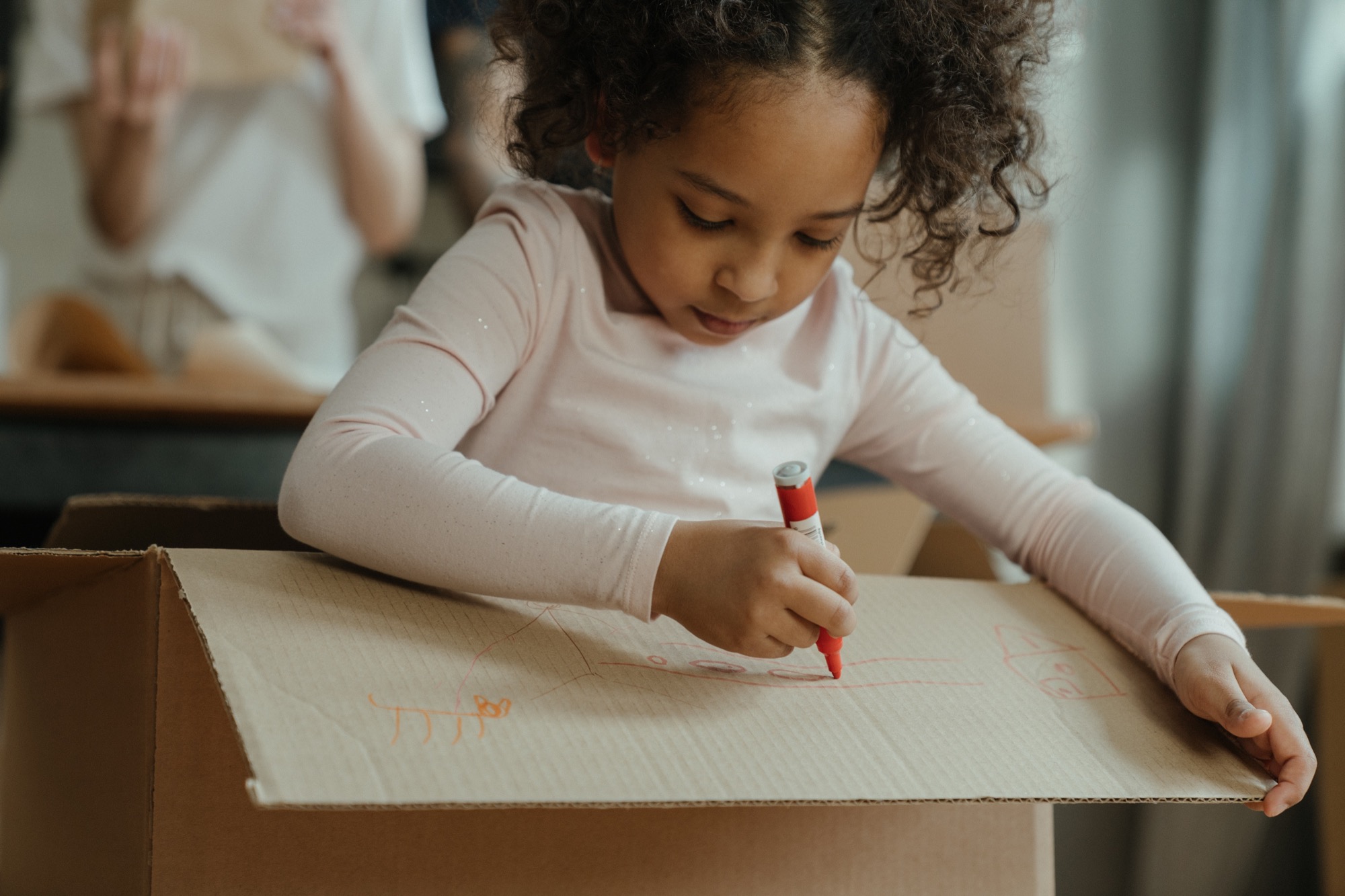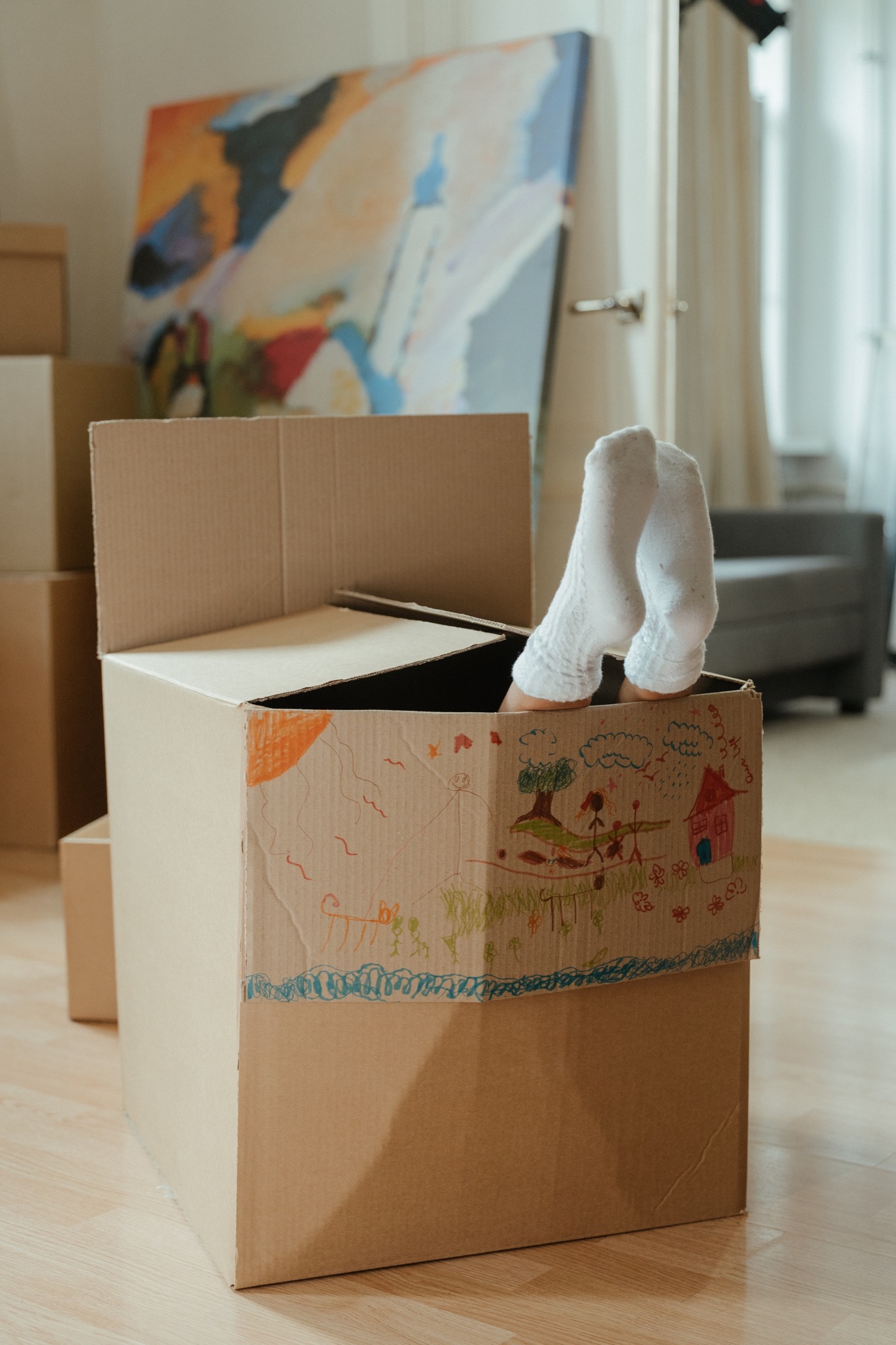
Relocating to a new home is a huge change for anyone, especially children. On top of the ordinary chaos surrounding the moving process, children must deal with issues like making new friends, attending a new school, and sleeping in a new place. Children might express a range of emotions throughout the moving process because they often do not fully understand what is happening. As a parent, you need to take the initiative to discuss the upcoming move with your children and help them process what is about to happen. Whether it is a local or cross-country move, children need help processing their emotions, and as the parent, it’s your responsibility to help them adjust to a new house.
1. Talk to Your Child
Talking to your child and providing clear answers is one of the easiest ways to help children adjust to a new house. When appropriate, you should allow your child to sit in on moving discussions and provide input on decisions. By listening, they will gain a better understanding of the moving process, and by participating in the conversations, they will be able to ask any questions they have and share their feelings. When your child feels comfortable enough to openly communicate about their feelings on the upcoming move, they will be more engaged in the process and less stressed about the changes.2. Set up Your Children’s Area First
Even if requires the rest of the house to be a bit chaotic, you should set up your children’s areas first. You don’t have to have all the décor perfectly arranged or have the closet perfectly organized, but you should spend time making sure all of their favorite items are easily accessible to them and that their beds are properly made. Giving your child a safe, familiar space helps them adjust to the new home faster and without the same levels of stress and anxiety.3. Stick to the Same Schedule and Routine
Sticking to the same schedule that your children had before the move can be difficult, but it is an essential part of helping them adjust. Especially with younger children, having the same routines for the morning and bedtime is important because it is one less change for them to endure. If they keep the same routine, they will be more accepting of their new living situation.4. Make it Entertaining
Throughout the moving process, you should try to make it as fun as possible. While packing, you can have children play with the moving boxes or create games for children to help you pack. After the move, you should spend time visiting your new local playgrounds or ice cream shop so children can experience joy in their new neighborhood too. To surprise your children, you can ask friends, family, and even neighbors to write letters in the mail so your children will receive mail at the new house and understand that they can still maintain their relationships.5. Take Care of Yourself
As parents, the focus is often on caring for other people, but you must remember to take care of yourself too. Stress and anxiety are real emotions that even adults experience during a significant life event like moving. If you don’t take care of yourself, you will be more likely to take your emotions out on your friends and family, and your children will sense your feelings and become more worrisome about the moving process. To take proper care of yourself, you should make it a priority to get a proper night’s sleep, eat healthy meals, and take a few minutes each day to relax.6. Arrange for New Playdates
After moving into your new house, you should arrange for playdates so your children can start making new relationships. You can have your children play with children in their new neighborhood, and you can ask your friends and family if they know any children in your new area that your children could meet. If your children are changing schools, you can ask the new school for a student or two who can be friendly faces by the time school starts again.7. Be Positive
The moving process is certain to throw you some curveballs, but for your children’s sake, you should treat it s a positive experience. If your children hear you continually talk about the moving process in a negative way, they will view moving negatively too. It’s healthy for children to see how their parents process emotions like sadness over leaving a beloved home behind, but it’s not healthy for children to see their parents constantly complain about what a pain moving is or how much they don’t like their new house.As a parent, helping your children adjust to a new move is an important responsibility. Having open conversations and trying to remain positive about the upcoming move are smart ways to engage your children in the moving process, and you should also try to make it as fun as possible. Children are resilient, but it is important to help them process their feelings so the adjustment can be as smooth as possible.
Valerie Cox is a contributing writer for Allied Van Lines. In her spare time, she enjoys traveling, spending time with her family, and volunteering in her local community.

